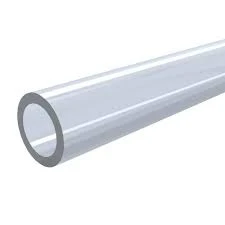sep . 27, 2024 19:39 Back to list
Understanding the Uses and Benefits of PVC Tubing in Various Applications
The Versatility and Applications of PVC Tubing
Polyvinyl chloride (PVC) tubing is a flexible plastic material that has gained immense popularity across various industries due to its versatile properties and cost-effectiveness. Created through the polymerization of vinyl chloride monomers, PVC tubing is utilized in applications ranging from plumbing and electrical insulation to medical devices and agriculture. In this article, we will explore the characteristics, benefits, and diverse applications of PVC tubing.
One of the most notable properties of PVC tubing is its excellent durability. PVC is inherently resistant to corrosion, abrasion, and impact, making it an ideal choice for both indoor and outdoor use. Its weather resistance allows it to withstand exposure to UV light and extreme temperatures without deteriorating or losing its integrity. As a result, PVC tubing can be used in various environments, from residential plumbing systems to industrial applications.
The Versatility and Applications of PVC Tubing
PVC tubing is available in a range of sizes and thicknesses, which adds to its versatility. This adaptability enables it to meet the specific requirements of different applications. For example, thin-walled PVC tubing is commonly used in medical settings for IV lines and catheters, while thicker-walled tubing is used for high-pressure applications like irrigation systems in agriculture.
pvc tube

In the realm of plumbing, PVC tubing is praised for its non-toxic properties. Unlike metal pipes that can leach harmful substances into drinking water, PVC is safe for use in potable water systems. The smooth interior surface of PVC tubing also helps to prevent buildup and blockages, ensuring a consistent flow of water. Moreover, the ease of cutting and joining PVC sections makes it a favorite material among plumbers and DIY enthusiasts.
In addition to plumbing, PVC tubing finds widespread use in the electrical industry. It serves as an effective conduit for electrical wiring, protecting cables from moisture, abrasion, and mechanical damage. PVC conduits are also simple to install and provide a flame-retardant solution, enhancing the safety of electrical systems.
The use of PVC tubing in medical applications cannot be overlooked. Its flexibility and biocompatibility make it suitable for a variety of medical devices, such as intravenous delivery systems, respiratory tubes, and surgical drains. The ability to sterilize PVC without compromising its structural integrity also makes it a preferred choice in healthcare settings where hygiene is crucial.
Moreover, PVC tubing is increasingly being utilized in various industrial applications. Industries such as agriculture, food processing, and chemical manufacturing benefit from its chemical resistance and reliability. For instance, in agricultural settings, PVC tubing is commonly used for drip irrigation systems that deliver water directly to plant roots, optimizing water usage and promoting healthier crop growth.
In conclusion, PVC tubing is a remarkable material that has a wide range of applications across multiple industries. Its durability, lightweight nature, flexibility, and non-toxic properties make it a top choice for plumbing, electrical insulation, medical devices, and various industrial uses. As technology advances and innovative solutions are sought to address changing needs, the demand for PVC tubing is likely to continue its upward trajectory. With its unique advantages and versatility, PVC tubing is undoubtedly an essential component in modern construction and manufacturing, contributing to efficiency and safety across many sectors.
-
Transparent PVC Pipe: Clear Flexible Tubing for Fluids
NewsAug.09,2025
-
Durable PP Rigid Sheet: Versatile & High-Quality Plastic Panels
NewsAug.08,2025
-
Premium Glossy PP Rigid Sheet – Durable & Versatile
NewsAug.07,2025
-
High-Quality HDPE Sheet | Durable Plastic Panels
NewsAug.06,2025
-
High-Precision PVC Rigid Sheets for Vacuum Forming | AI-Optimized
NewsAug.05,2025
-
Durable PVC-M Water Supply Pipes | 60-Year Life
NewsAug.04,2025

